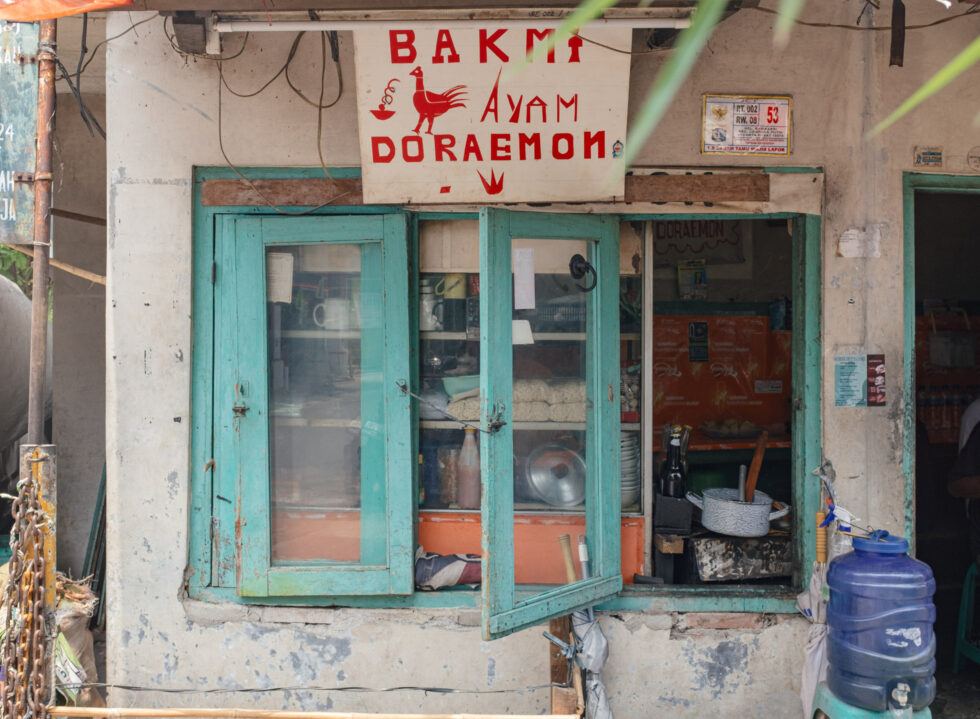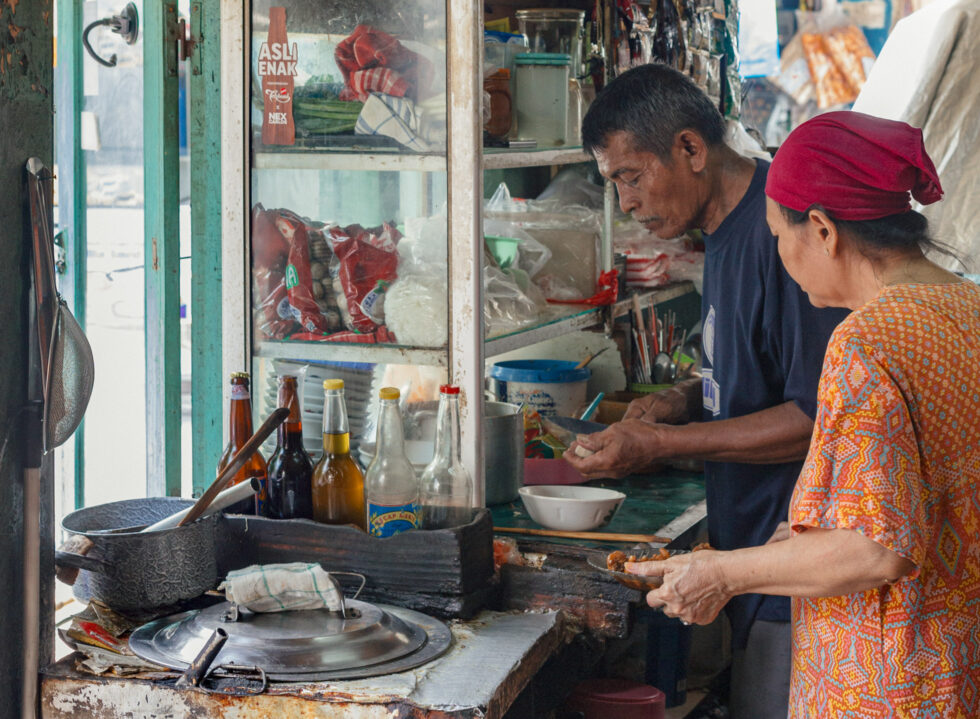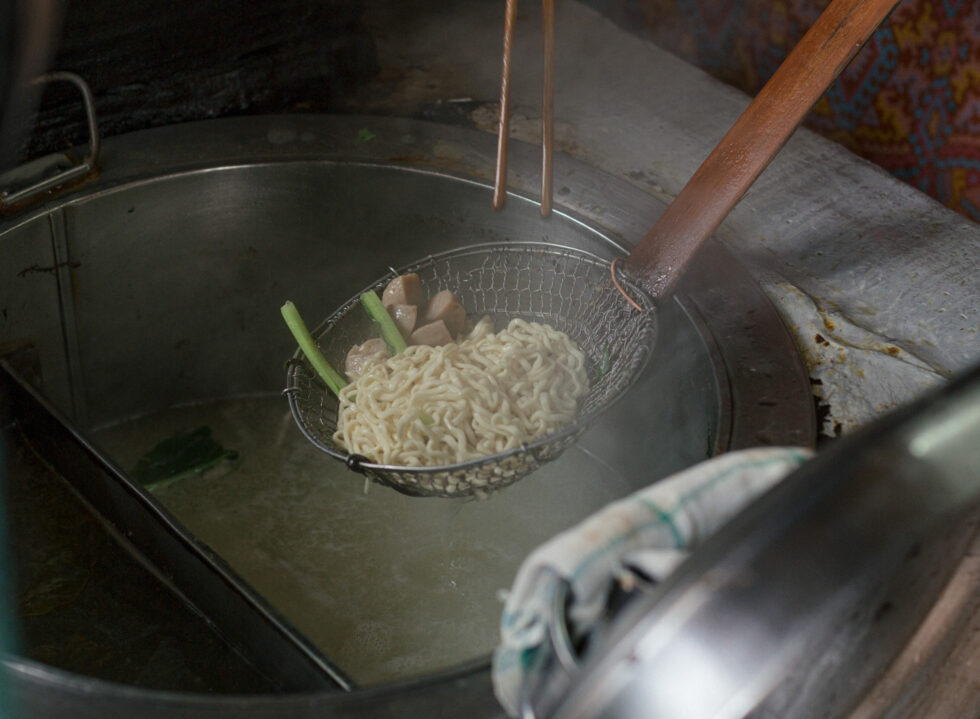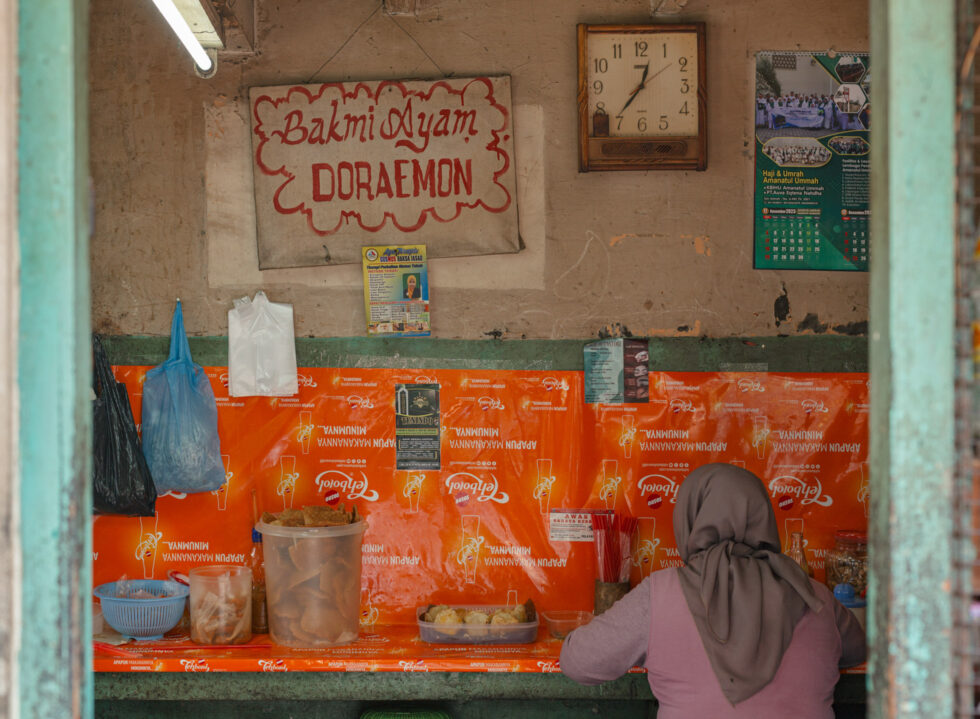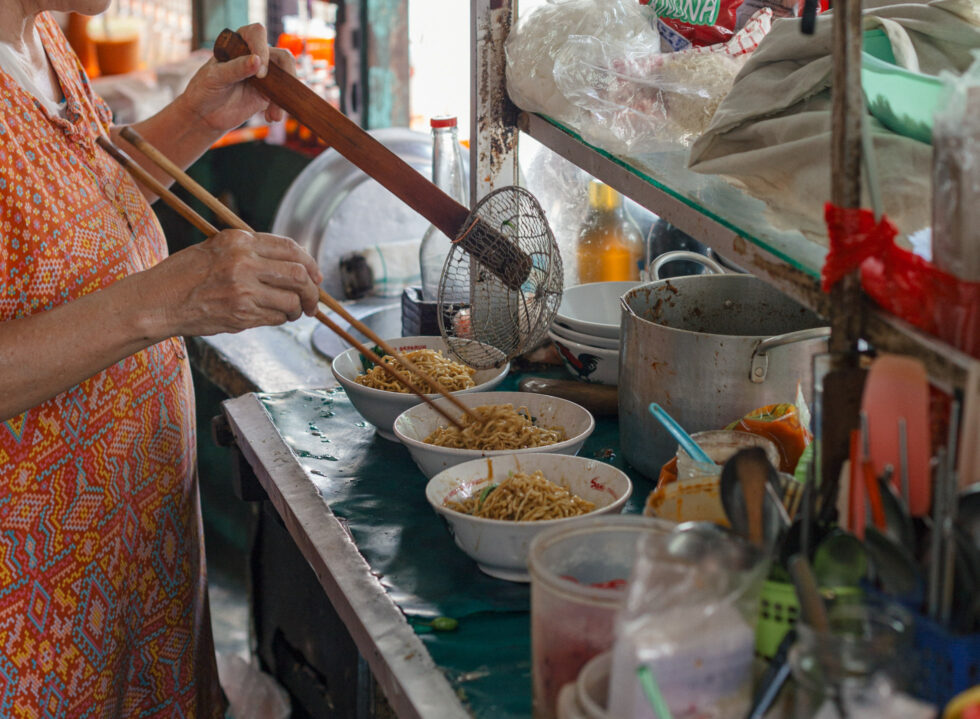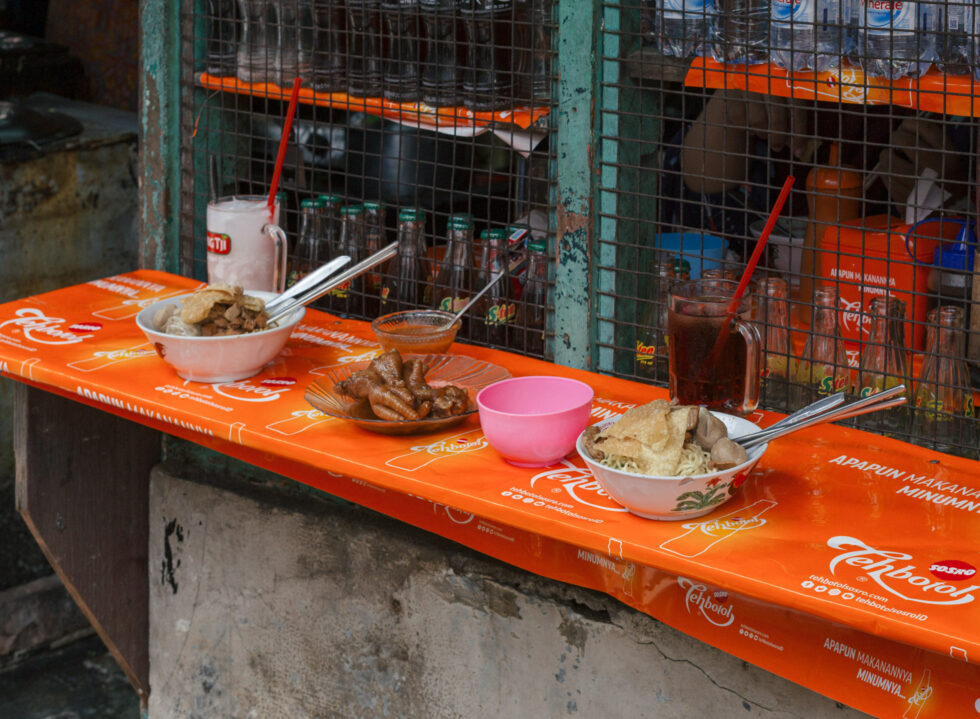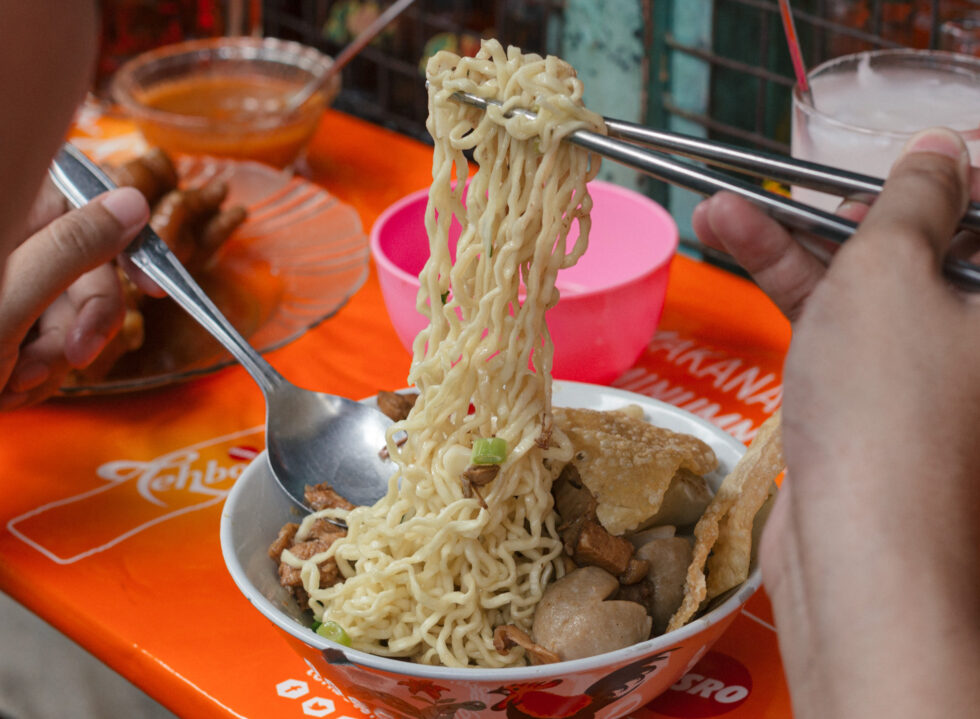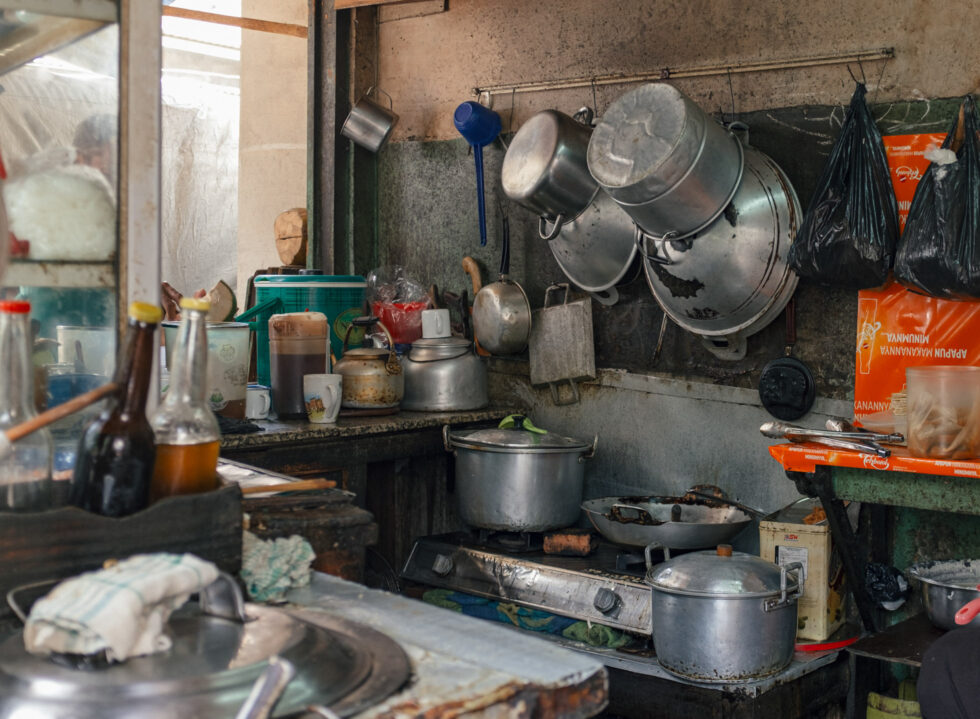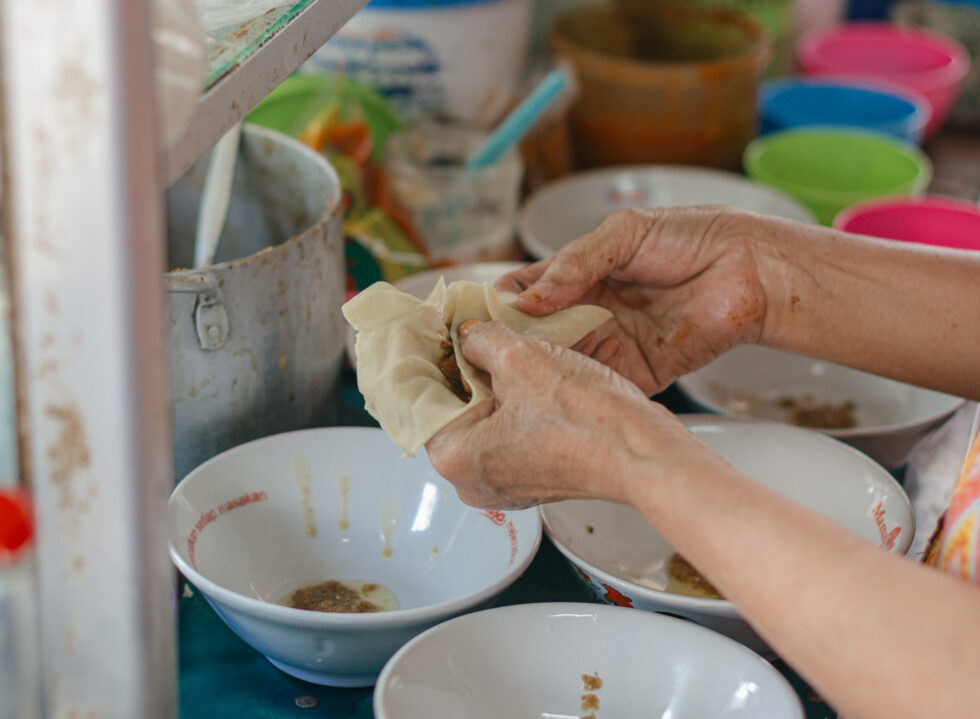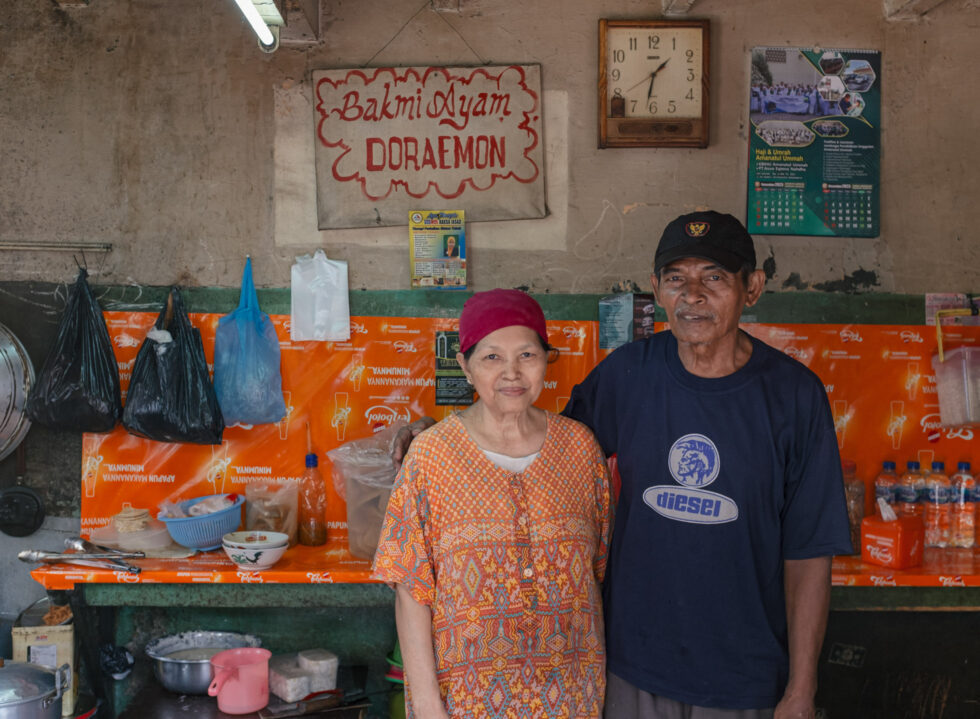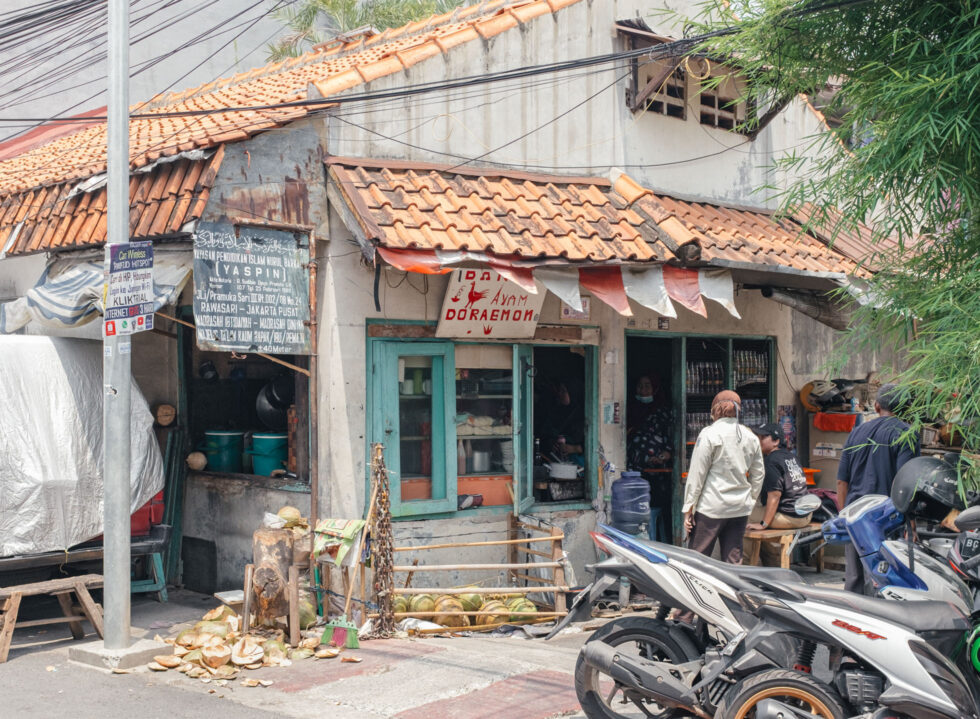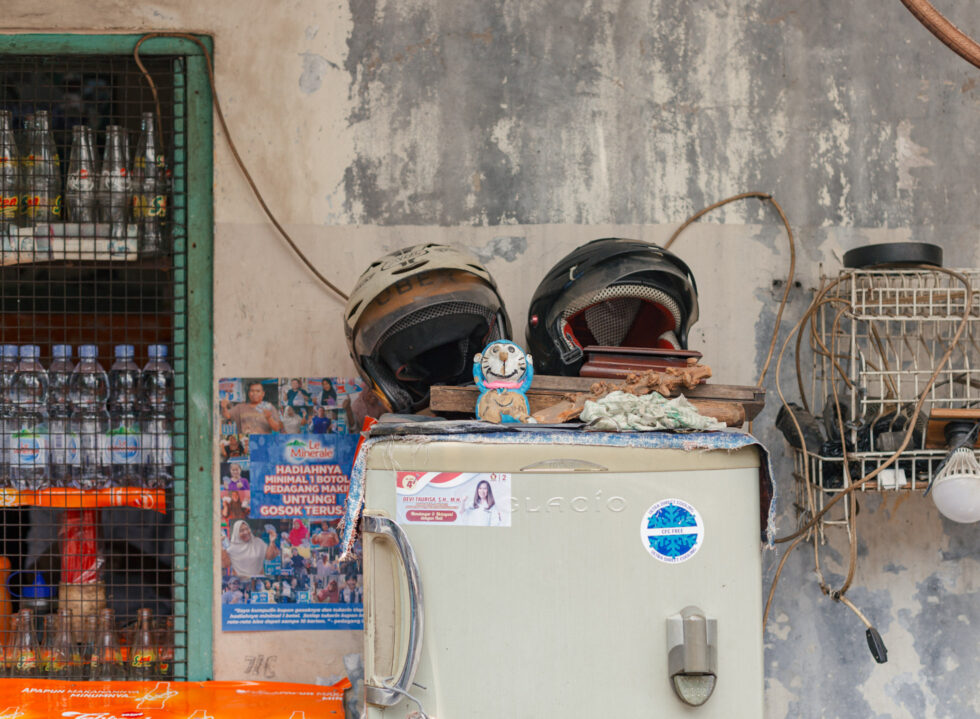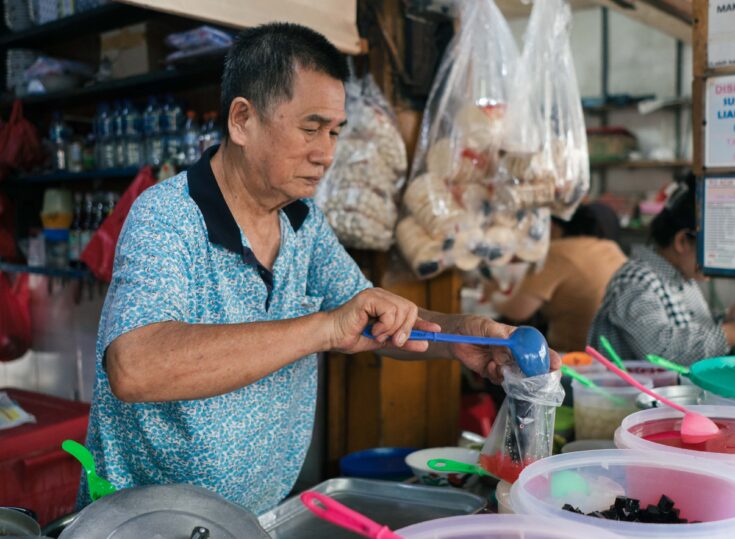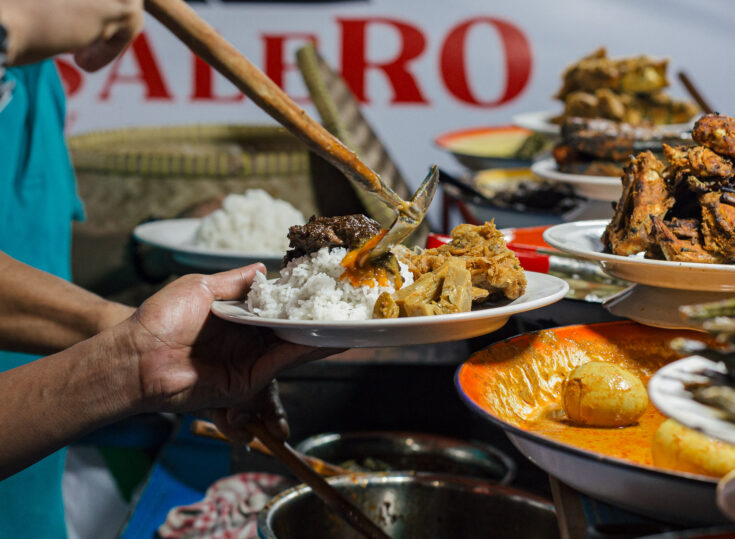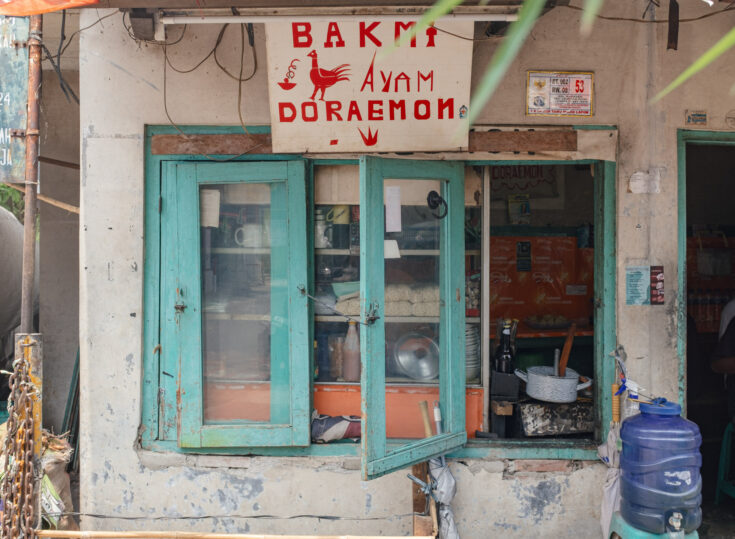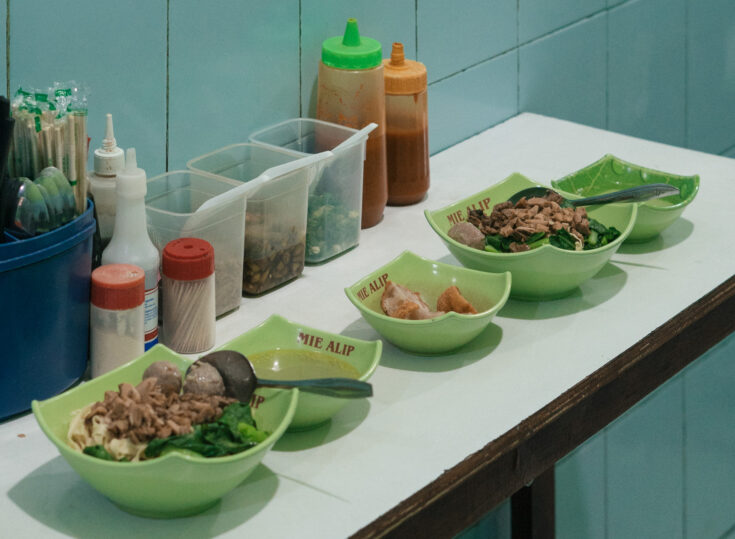Culinary hunters attracted by the recent internet popularity of Bakmi Ayam Doraemon in Cempaka Putih might initially be taken aback by its hideaway location. The 37-year-old noodle eatery—named after the discontinued MSG brand instead of the beloved manga character by Fujiko Fujio—takes up a quaint corner house deep inside the quiet neighbourhood of Pramuka Sari III, where the chirping of birds, the crowing of roosters and the chatter of children talking about their day can be heard over the city’s usually inescapable roar of passing vehicles.
65-year-old Ibu Sakirah helms the operation alongside her husband, Pak Wajab—though many who have long frequented the eatery would simply call them Bude and Pakde, the Javanese term for aunty and uncle. Fittingly, the two would welcome regulars into the eatery as if they’re family members coming for a visit; small talks like “Wow, you’re all grown up now.” and “Where’s your grandson?” can be overheard from their exchange.
“We’re getting a lot of attention lately because of the internet, but we’ve always had regulars who live far away and would make the trip here just for our noodles,” shared Ibu Sakirah, who is in charge of the cooking—typically in her loose daster (home dress)—while Pak Wajab helps her with prepping and cleaning.
The noodles she makes are the type one would find at most mie ayam (chicken noodle) street carts in the city, which is a derivative of the Chinese bakmi dish. Flavours come not from the noodles themselves but added in through the subtly savoury broth and the generous topping of thickly-sliced chicken and mushroom, coated in a sweet soy sauce dressing. She then adds her own twist by using the same combination of chicken and mushroom in her dumplings, and even the side dish of ceker (chicken feet) is similarly cooked in the soy sauce concoction.
“When we moved from Brebes to Jakarta in 1978, we started out by selling bubur ayam (chicken congee). Then in 1986, we decided to switch to coconut water; so we thought, what would go well with the drink? It’s noodles,” told Ibu Sakirah.
But spending enough time inside the compact eatery—casually rubbing elbows with office workers and neighbourhood residents alike—all the while listening to Ibu Sakirah’s story about forgotten Javanese traditions as well as finding amusement in Pak Wajab’s dad jokes, one would see that the pull here is not just the noodles themselves (nor the coconut water served fresh to your table).
There’s a charm to Bakmi Ayam Doraemon that is so quintessential to small, intimate eateries with a close connection to their community; one that allows life stories to be exchanged before knowing each other’s names, and one that many would seek out for the simple pleasure of the company.
